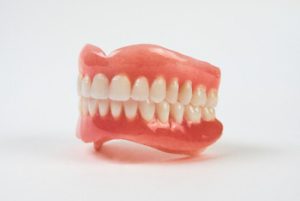Dentures are a trusted and reliable solution for replacing missing teeth and regaining confidence in your smile. Whether you’re dealing with significant tooth loss, natural teeth remaining, or a need for full or partial dentures, understanding the cost of dentures is a vital step in making a knowledgeable decision. From traditional dentures to implant-supported options, the choices can be overwhelming. Let’s dive into the details of how much a set of dentures will cost, the factors that influence pricing, and what options may suit your unique dental needs.
What Are Dentures, and Why Do People Need Them?
Dentures are removable or fixed dental prosthetics designed to replace lost or missing teeth. They play a critical role in restoring oral health, improving facial structure, and allowing individuals to chew and speak comfortably.
Why Choose Dentures?
- Replace Missing Teeth: Dentures fill the gaps left by tooth loss, giving a functional and aesthetic solution.
- Support Facial Muscles: Dentures prevent the sagging of facial muscles, which can occur after significant tooth loss.
- Enhance Oral Health: By replacing missing teeth, dentures help reduce the risks of gum disease, tooth decay, and further tooth loss.
How Much Do Dentures Cost in Australia?
The cost of dentures in Australia varies significantly depending on the type, material, and complexity of the dental procedure. Here’s a breakdown of the factors influencing denture prices:
Denture Types and Their Costs
- Complete Dentures: These substitute all teeth in the upper or lower jaw, often referred to as upper and lower dentures. Prices start at $2,000 per arch, depending on the quality of materials and the clinic.
- Partial Dentures: Designed for those with some natural teeth remaining, these start at $700.
- Implant-Supported Dentures: A more permanent solution anchored by titanium implants. Prices can start at $10,000 per arch.
- Chrome-plated or Hybrid Partial Dentures: These are durable and cost usually start at $1,000.
Materials Used
High-quality materials, such as acrylic resin or chrome-cobalt, result in higher costs but provide more durability and a natural appearance. Cheaper materials may save money initially but may require frequent replacements.
Associated Costs
Additional costs can include:
- Initial Consultation: Typically starts at $50, often rebated with private health insurance.
- Tooth Extractions: These are necessary for preparing the gums, starting at $200 per tooth.
- Denture Adhesive and Maintenance Supplies: These can add a minimum of $100 annually.
Dental Clinic
The reputation and expertise of the clinic or dental professional also influence pricing.
Location
Costs tend to be higher in urban areas compared to regional or public dental clinics.
Personalised Treatment Plan
Every smile is unique, and a tailored approach to denture needs often requires varying procedures, which can impact the cost.
Private Health Insurance
Health insurance may cover part of the costs, particularly for dental services, but out-of-pocket expenses vary.
Flexible Financing Options for Dentures and Dental Treatments
Navigating the cost of dental treatments, including dentures, can feel overwhelming. However, flexible financing options make quality care accessible to a broader range of patients. By exploring tailored payment plans and government-backed initiatives, you can find a solution that works for your budget while ensuring your oral and dental health remains a priority.
Interest-Free Payment Plans
One popular option is interest-free payment plans, which allow you to spread the cost of your treatment over manageable instalments. These plans typically include:
- Customised Payment Terms: Choose from weekly, fortnightly, or monthly payment schedules.
- No Upfront Costs: Start your treatment without a hefty initial payment.
- Low or No Interest: Many providers offer plans with zero interest, making it easier to budget.
These plans are ideal for treatments like partial dentures, dental implants, and more extensive dental procedures, offering financial flexibility without compromising quality.
Accessing Superannuation for Dental Care
Did you know you can access your superannuation to fund essential dental treatments? Under a government initiative, patients experiencing financial hardship or requiring urgent medical procedures may be eligible to use their superannuation savings for dental care. This option applies to treatments such as:
- Full Dentures or Dental Implants
- Procedures for Significant Tooth Loss
- Dental Emergencies or Pain Management
Eligibility requirements apply, and the process typically involves working with an experienced team to assist with the application. This approach is especially helpful for those needing immediate care but lacking sufficient savings.
Benefits of Flexible Financing
Flexible financing options bring several advantages, including:
- Affordability: Break down the cost into smaller, budget-friendly payments.
- Timely Treatment: Avoid delays in addressing oral health issues, reducing the risk of complications like gum disease or tooth decay.
- Personalised Plans: Tailored solutions to fit individual financial circumstances.
When considering financing options, evaluate factors such as repayment terms, interest rates, and eligibility requirements. Speak with your dental clinic about available options and discuss which plan aligns with your treatment goals and financial situation.
Taking advantage of these options ensures that the cost of dentures, dental implants, or other treatments doesn’t become a barrier to achieving a healthy, confident smile.
Dentures vs. Other Tooth Replacement Options
If you’re considering dentures, you may also explore alternatives like dental implants or fixed bridges. Here’s a quick comparison:
- Traditional Dentures: Affordable and versatile but may require adhesive and adjustments.
- Implant-Supported Dentures: This denture type is more expensive upfront but offers a permanent solution with less maintenance.
- Fixed Bridges: Ideal for replacing a few missing teeth but not suitable for significant tooth loss.
Steps to Getting Dentures
Getting dentures is a multi-step process designed to ensure they fit comfortably, look natural, and restore your oral functionality. Here’s a breakdown of the key steps involved:
Initial Consultation
Your journey begins with an appointment with a dental professional. During this visit:
- Your oral health is assessed.
- Options such as complete dentures, partial dentures, or implant-supported dentures are discussed.
- A personalised treatment plan is developed, outlining the steps and costs involved.
Preparing the Mouth
If necessary, tooth extractions or treatment for conditions like gum disease or dental decay will be carried out to create a healthy foundation for your dentures. This step ensures:
- Proper fitting of the dentures.
- Long-term comfort and functionality.
Taking Impressions
Precise moulds of your upper and lower jaw are taken using moulds. These impressions help create a customised denture that fits snugly and aligns perfectly with your bite.
Designing the Dentures
The impressions are forwarded to a dental lab where the dentures are crafted. High-quality materials such as acrylic or chrome cobalt are often used to ensure durability and a natural appearance. This step may involve:
- Designing upper and lower dentures separately or as a set.
- Selecting the shade and shape of the denture teeth to mimic natural teeth.
Fitting and Adjustments
Once the dentures are ready, you’ll have a fitting appointment:
- Your dentist will secure the comfortable fit of your dentures and align them correctly with your bite.
- Minor adjustments may be made to eliminate pressure points or discomfort.
Final Placement
After adjustments, the final dentures are placed. This step usually occurs after your gums have healed completely.
Follow-Up Appointments
Regular follow-ups are crucial to track your progress and make further adjustments if needed. Over time, your dentist may recommend relining or rebasing to maintain the fit as your gum shape changes.
Ongoing Care and Maintenance
 Proper care ensures your dentures remain comfortable and functional. This includes:
Proper care ensures your dentures remain comfortable and functional. This includes:
- Cleaning your dentures daily.
- Use denture adhesive if required.
- Scheduling periodic check-ups to address any issues promptly.
By following these steps, you can achieve a comfortable fit and regain confidence in your smile.
Why Invest in High-Quality Dentures?
Investing in quality dentures ensures:
- Durability and longevity.
- A natural appearance mimics real teeth.
- Comfort for daily activities like eating and speaking.
How to Care for Your Dentures
Regular care keeps your dentures in great shape for longer.
- Clean dentures daily using a soft-bristle brush.
- Use a suitable denture adhesive for stability.
- Schedule regular visits to your dentist for adjustments.
Choosing the Right Denture Option for You
The right choice highly depends on your specific needs, including:
- Facial Muscles Support: For those experiencing muscle sagging due to tooth loss.
- Denture Needs: For patients requiring immediate or temporary solutions.
- Budget: From cheaper materials to high-quality dentures, your financial flexibility matters.
How Dentures Can Transform Your Life
Dentures offer much more than just a functional replacement for missing teeth—they can transform your quality of life. Here’s how:
Restored Confidence
A beautiful, natural-looking smile can do wonders for self-esteem. Missing teeth can often cause social anxiety and make people hesitant to smile or speak confidently in public. Dentures fill these gaps, literally and figuratively, giving you the confidence to interact with others without worrying about your appearance.
- Dentures are designed to mimic natural teeth, blending seamlessly with your facial features.
- Improved confidence often leads to better social interactions and professional opportunities.
Enhanced Eating and Speaking
Missing teeth can make chewing difficult and speech unclear. Dentures restore these essential functions, allowing you to enjoy your favourite foods and speak with clarity.
- Dentures provide the necessary support for effective chewing, improving digestion and overall health.
- Speech clarity improves as the dentures fill gaps, enabling better enunciation of words.
Better Oral and Overall Health
Replacing missing teeth with dentures helps maintain oral health and prevent further complications.
- Dentures reduce the risk of gum disease and tooth decay by eliminating food traps caused by gaps.
- Proper chewing with dentures aids digestion, contributing to better nutrition and overall well-being.
Common Challenges with Dentures and How to Overcome Them
Adjusting to dentures may come with some challenges, but these can be managed effectively with the right approach.
Initial Discomfort
It’s normal to feel some discomfort or soreness when you first start wearing dentures. This can include minor irritation, increased saliva production, or difficulty speaking.
- Start by wearing dentures for shorter periods and gradually increase the duration.
- Practise speaking aloud to adjust to the feel of dentures in your mouth.
- Use denture adhesive if recommended by your dentist to improve stability.
Maintaining Fit Over Time
As your gums and jawbone change shape, dentures may loosen, leading to discomfort or reduced functionality.
- Regular visits to your dentist can help identify when adjustments or relining are necessary.
- Relining or rebasing can restore the fit of your dentures without needing a full replacement.
Avoiding Denture Staining and Odour
Dentures are prone to staining and odour if not cleaned properly.
- Clean dentures daily with a soft brush and non-abrasive cleanser.
- Soak dentures for the recommended time in a suitable cleaning solution to remove bacteria and odours.
- Avoid staining foods and drinks, such as coffee, tea, and wine, and rinse dentures after consuming them.
Dentures and Diet: What to Eat
Your diet will need some adjustments when you first start wearing dentures, but with time, you can enjoy most of your favourite foods.
Soft Foods to Start
When adjusting to dentures, begin with soft, easy-to-chew foods like:
- Mashed potatoes
- Soups
- Scrambled eggs
- Smoothies and yoghurt
These options minimise strain on your gums and help you get comfortable with chewing.
Avoiding Sticky or Hard Foods
Sticky and hard foods can damage dentures or cause discomfort. Avoid items such as:
- Chewing gum
- Caramel
- Nuts and hard candies
- Crunchy fruits or vegetables like apples and carrots (unless chopped into small pieces)
Long-Term Eating Habits
Once accustomed to your dentures, you can gradually reintroduce firmer foods. Follow these tips:
- Cut food into smaller pieces to make chewing easier.
- Chew slowly and evenly, using both sides of your mouth to prevent shifting.
- Stay hydrated to improve saliva flow, which aids in swallowing and denture stability.
Dentures vs. Natural Teeth: Adjusting to the Difference
While dentures offer a great replacement for missing teeth, they do differ from natural teeth in several ways.
Functional Differences
Unlike natural teeth anchored in the jawbone, dentures rely on suction, adhesives, or implants for stability.
- Dentures may feel less secure initially, especially traditional options, but proper fit and adhesive can improve stability.
- Chewing efficiency is slightly reduced compared to natural teeth, so adjustments in eating habits are necessary.
Appearance
Modern dentures are crafted to look as close to natural teeth as possible. However, they can’t replicate the exact feel of real teeth.
- High-quality dentures are designed to match your natural tooth colour and gum tone.
- Advances in materials make modern dentures almost indistinguishable from natural teeth in appearance.
Long-Term Adaptation
Getting used to dentures requires patience and practice.
- Practise speaking aloud to adjust to any initial speech changes.
- Follow your dentist’s care instructions to keep dentures in top condition.
- Over time, most patients find they can chew, speak, and smile with confidence.
Why Skipping Dentures Could Cost You More Than You Think
Failing to address missing teeth by getting dentures can lead to serious consequences for your health, finances, and well-being.
Health Consequences
Leaving gaps from missing teeth untreated can cause:
- Gum disease from exposed tissue.
- Jawbone loss due to a lack of stimulation from chewing.
- Shifting of remaining teeth, leading to misalignment and further oral issues.
Financial Implications
Ignoring tooth loss can result in the need for more expensive treatments in the future, such as:
- Dental implants to replace multiple lost teeth.
- Corrective procedures for misalignment or gum disease.
Emotional Impact
Living with missing teeth can affect mental health, leading to lower self-esteem and social withdrawal. Investing in dentures provides both functional and psychological benefits.
Dentures and Ageing: Adapting to Changing Needs
As we age, changes in oral and physical health can impact the fit and functionality of dentures.
How Age Affects Dentures
Over time, the shape of your gums and jawbone can alter, causing dentures to loosen.
- Bone resorption (loss) is common, particularly in areas where teeth are missing.
- Gum tissue may shrink, reducing the suction needed for a secure fit.
Periodic Updates
Regular dental check-ups are crucial to maintaining the fit and comfort of your dentures.
- Dentures may need relining or rebasing every 2–5 years.
- In some cases, a complete replacement may be necessary to ensure functionality.
Tips for Senior Denture Wearers
Older adults may face unique challenges, but these tips can help:
- Stay hydrated to prevent dry mouth, which affects denture stability.
- Use adhesive sparingly to enhance comfort and security.
- Ensure dentures are cleaned daily to reduce the risk of infections or odour.
Final Thoughts: Your Journey to a Confident Smile
 Dentures are a practical and cost-effective way to get false teeth to restore your smile and improve oral health. Whether you opt for conventional dentures, implant-supported options, or something in between, there’s a solution to fit every need and budget.
Dentures are a practical and cost-effective way to get false teeth to restore your smile and improve oral health. Whether you opt for conventional dentures, implant-supported options, or something in between, there’s a solution to fit every need and budget.
If you’re ready to learn more, book a consultation with Beyond Infinity Dental at (02) 8806 3799 to discuss your options, receive a personalised treatment plan and regain your confidence today!
Note: Any surgical or invasive procedure carries risks. Before proceeding, you should seek a second opinion from an appropriately qualified health practitioner.
References:
- Colgate. (n.d.). Implant-supported denture. Colgate Oral Health Center. Retrieved from https://www.colgate.com/en-us/oral-health/dentures/implant-supported-denture
- WebMD. (n.d.). Dentures. WebMD. Retrieved from https://www.webmd.com/oral-health/dental-health-dentures
- My SuperCare. (n.d.). My SuperCare. Retrieved from https://www.mysupercare.com.au/
- Cleveland Clinic. (n.d.). Dental impressions. Cleveland Clinic. Retrieved from https://my.clevelandclinic.org/health/diagnostics/22671-dental-impressions
- Mayo Clinic. (n.d.). Denture care: Expert answers. Mayo Clinic. Retrieved from https://www.mayoclinic.org/denture-care/expert-answers/faq-20058375
- National Health Service. (n.d.). Gum disease. Retrieved from https://www.nhs.uk/conditions/gum-disease/









